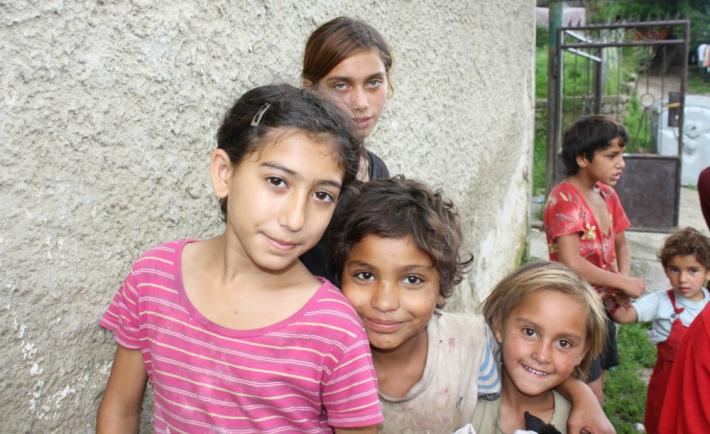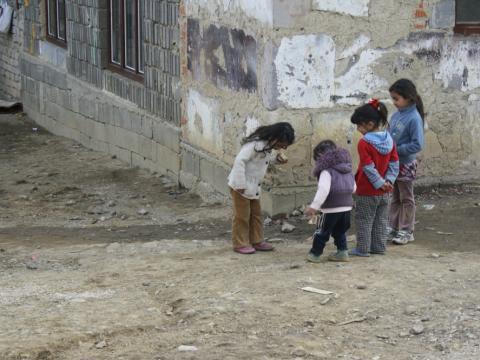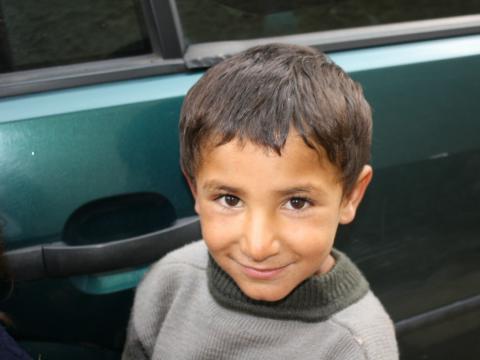
Recent anti-Roma speech throughout Europe, including in Slovakia, negatively impacts Roma children like these, photographed by Nadezhda Mouzykina in a segregated Slovak settlement.
Editor's Note: Stanislav Daniel, NDI Roma Political Participation Program Alumnus and Coordinator of Romani Early Years Network, contributed to this piece.
Slovakia’ ruling SMER party convened its annual congress in December. Although a social democratic party now in power for a number of years, the congress had the unfortunate political trappings of a populist, right-wing gathering. Instead of pronouncing on poverty and inequality and other issues important to all citizens, the party chose instead to scapegoat Slovakia’s most vulnerable constituency—the Roma—as public support for a far-right political alternative grows.
Slovakia has joined other countries in Central Europe in vociferously objecting to taking in refugees from the greater Middle East, often resorting to statements that question its commitment to uphold human rights on the basis of religion, ethnicity and national origin. Slovakia’s sizable, indigenous Roma minority, by some unofficial counts comprising 7-10 percent of the population, finds itself in the crosshairs.
On average, eight in 10 Roma in Europe are at risk of poverty. According to the European Union’s Fundamental Rights Agency, every third Romani child lives in household where someone went to bed hungry at least once in a previous month. In Slovakia, 62 percent of Romani children are schooled in a segregated Jim Crow-like system. Many Roma live in wholly segregated communities without basic infrastructure.
Roma have typically suffered from far-right attacks. Now Slovakia’s government leaders are also joining in, in what appears to be a deliberate and misguided political strategy to stem the rising tide of Slovakia’s fascist party, People’s Party—Our Slovakia, which opinion polls show as garnering the support of one-third of 18—39 year olds.
This was presumably on the mind of SMER leader and current Prime Minister Robert Fico when he ascended the podium at the party congress on December 10, never mind that December 10 is the International Day of Human Rights. Fico blamed the Roma for crime and other social ills, effectively called for extralegal measures to police their impoverished settlements and justified his apparent willingness to discard constitutionally guaranteed human rights to personal protection by labeling any such concerns as nothing more than “political correctness.”
This was not Fico’s first turn to criticize fellow citizens. Four years ago he declared that the increasing number of Roma elected mayors and local councilors presented a threat to Slovak society.
The Prime Minister would do well to emulate the people whom he excoriates. NDI has trained many Roma leaders in Slovakia who have used what they learned to run for public office, get elected, perform admirably and win re-election, some in ethnically mixed communities. They know their communities and talk to people daily about their needs. They are wise enough to avoid empty promises and populist talk. They choose the harder political task of earning the respect of people on the basis of what you do, not manipulating unjust fears by what you say. And they know that to defeat populism you cannot succumb to it. They represent the leadership that Slovakia needs.




